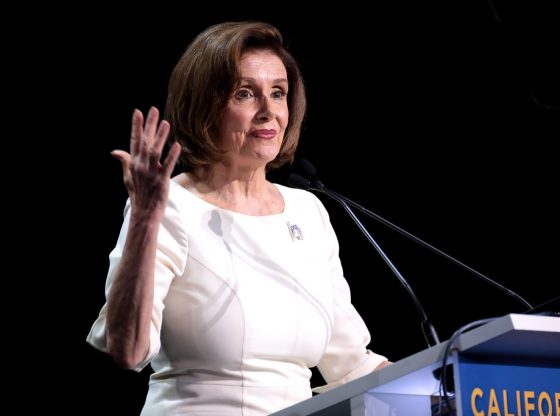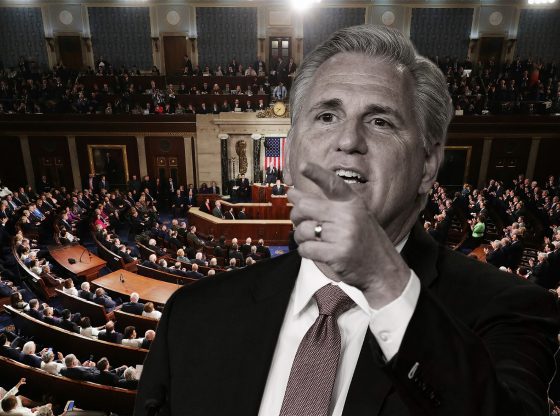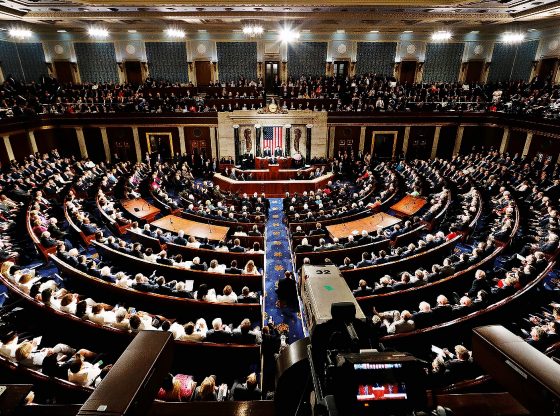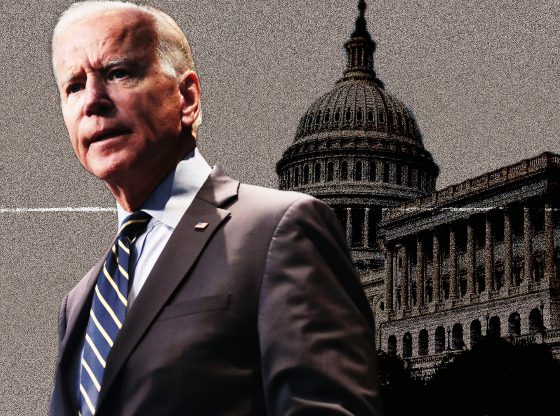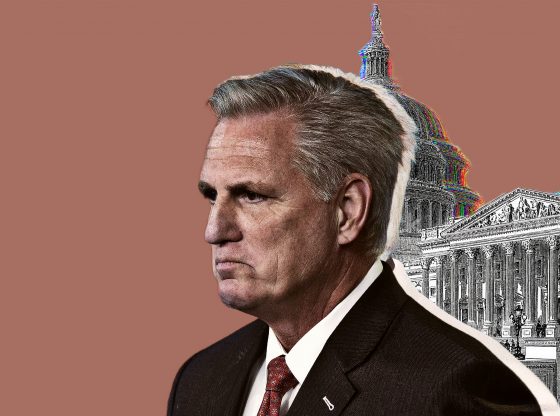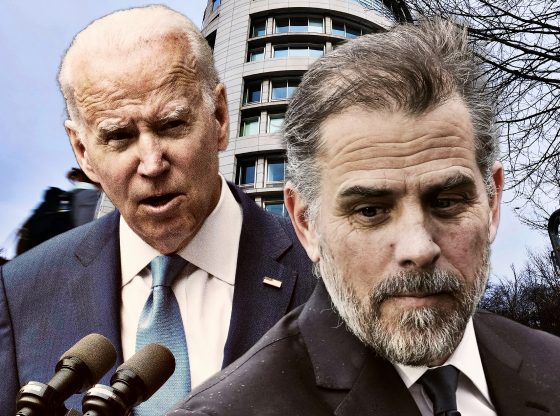- Congressional elections in California could make or break the GOP’s control of the House in 2024, as well as determining whether Speaker Kevin McCarthy keeps his leadership status, several state operatives told the Daily Caller News Foundation.
- California Republicans were able to secure 12 seats in the 2022 midterms, and have picked up five over the last two cycles; the state operatives, and McCarthy himself, have attributed the House control and speakership to California’s wins.
- “In 2022 the Republican wave never occurred but the Republican wins were waiting in California that made him Speaker,” Mike Vallante, Republican strategist based in California and Director for America First Policy Institute’s Center for Election Integrity, told the DCNF. “The same scenario is likely in 2024.”
California’s congressional elections in 2024 could make or break the GOP’s control of the House in 2024 and determine whether Speaker Kevin McCarthy retains his leadership position, several GOP operatives in the state told the Daily Caller News Foundation.
Many operatives attribute the GOP’s newfound control of the House and McCarthy’s speakership to the seats California Republicans were able to secure over the last two cycles. The Republican-held House and McCarthy’s speakership could hinge on congressional wins in California once again, and Republican strategists in California argue they have the opportunity to retain their 12 congressional seats, and even grow the majority next year.
“There’s no dispute — the road to the majority runs through California,” California state Assembly Republican Leader James Gallagher told the DCNF. “Speaker McCarthy has been a great partner in making sure our candidates are well positioned to win their races, not just on the congressional level, but up and down the ballot.”
Though the widely anticipated “red wave” didn’t occur in the 2022 midterms, California Republicans were able to retain all 11 incumbent seats, and gain one with Rep. John Duarte, marking five pick-ups over the last two cycles. After a long and contentious speakership bid in January, McCarthy, a California Republican, secured the gavel on the 15th vote.
During a mid-August press call, McCarthy indicated that his ability to retain his speakership status largely depends on whether the California Republicans can hold their seats in 2024, and attributed the House’s four-seat majority to those wins.
“Is my future as Speaker dependent on holding the five seats we picked up in California? Yeah. We have our entire majority because we won in California. We picked up those House seats over two cycles,” McCarthy said. “We’ve elected more women as Republicans … Hispanics as Republicans … [and] black Republicans.”
Mike Vallante, a Republican strategist based in California and director of America First Policy Institute’s Center for Election Integrity, agreed with McCarthy’s prediction of the upcoming election.
“In 2022 the Republican wave never occurred but the Republican wins were waiting in California that made him Speaker,” Vallante told the DCNF. “The same scenario is likely in 2024.”
Sal Russo, a prominent GOP consultant based in California, doesn’t think the Republicans’ control of the House is dependent upon how well the state’s members perform in 2024, and argued New York‘s seats could make or break the majority instead. McCarthy’s speakership status will likely be safe regardless of the California members’ ability to retain their seats, Russo told the DCNF.
“[McCarthy] has been just extraordinary in fundraising, in candidate development, in making sure that campaigns are well run,” said Russo. “I mean, [he’s] been very hands-on in the business of electing the House majority, so I don’t think anybody lights a candle to him.”
California Republican Party Chairwoman Jessica Patterson acknowledged the role California Republicans have played in delivering seats for the House majority and boosting McCarthy’s speakership bid, and told the DCNF the party will strive to continue that success in 2024.
“Republicans will grow our majority and re-elect Speaker Kevin McCarthy thanks to our exceptional House Republican Members and candidates in California,” National Republican Congressional Committee (NRCC) spokesperson Ben Peterson told the DCNF. “While Democrats are failing Californians with historic inflation, skyrocketing gas prices and exploding crime, these Republican leaders are playing offense and running on a strong record of results.”
The California operatives argue that recruiting diverse members in swing districts has helped the Republicans successfully win and retain seats, pointing to minority, female and combat veteran candidates.
“We go and we try and find the right candidate for that district, and California is a diverse place, so that candidate isn’t going to look the same everywhere,” said Patterson. “We’re winning in places where we are finding the right candidate, they are resourced right and we are doing everything we need to do tactically on the ground to make sure that we can win.”
State operatives argue Republicans have the opportunity to gain congressional seats in three vulnerable Democrat-held districts — those of Democratic Reps. Josh Harder and Mike Levin, as well as the open seat of Katie Porter, who is running for Senate.
The California GOP has already endorsed two candidates running in those swing districts, with Stockton Mayor Kevin Lincoln vying for Harder’s seat and former state Assembly Republican Leader Scott Baugh eyeing Porter’s, Patterson told the DCNF.
“In terms of the quality of the candidates and the sophistication of the campaigns that they are capable of running, we have a really strong cast of characters in California,” said Russo.
Lincoln told the DCNF he’s confident in his ability to flip the seat red, citing his previous win in 2020 against an incumbent mayor with the backing of numerous prominent Democrats.
The House Democrats’ campaign arm, the Democratic Congressional Campaign Committee (DCCC), has seven Republican-held seats in California that they view as vulnerable in 2024, according its website. Along with Duarte, Republican Reps. Kevin Kiley, David Valadao, Mike Garcia, Young Kim, Ken Calvert and Michelle Steel are on the DCCC’s target list, along with Porter’s open seat.
“One of the reasons why voters in my district, and a growing number of districts here in California, are rejecting Democrats is they are confronted everyday with the results of failed liberal policies when they fill up at the gas pump, when they can’t take their kids to the local park because it’s now a homeless encampment, or when their local mom and pop store closes because theft is now effectively legal in California,” Calvert told the DCNF.
Adam Gray, who previously ran against Duarte in 2022 and narrowly lost, launched another bid for the seat in early August. Gray is a former state lawmaker who criticized Duarte in his campaign announcement video for supporting pro-life policies and entitlement reform.
“People in California have had enough and voters know who to blame,” GOP Rep. Doug LaMalfa, whose seat is not being targeted by the DCCC, told the DCNF. “Winning more seats in California will help keep Kevin McCarthy as our House Speaker.”
Russo and Vallante both acknowledged how there are other unknown factors that will be in play for these congressional races by the time November 2024 rolls around, including who will be at the top of the ticket for the White House.
“The presidential race is so tumultuous that who knows what will happen in four months, six months or a year,” said Vallante. “The two runaway leaders for both parties right now might not be the eventual nominees. That’s why the freshmen, and really anyone in a competitive seat, need to do their homework every day. They can’t rely on coattails, especially here in California for a Republican.”
McCarthy, Porter, Harder, Levin, Baugh, the NRCC, the members of California’s Republican congressional delegation, the DCCC and the California Democratic Party did not immediately respond to the DCNF’s requests for comment.
Mary Lou Masters on September 3, 2023



